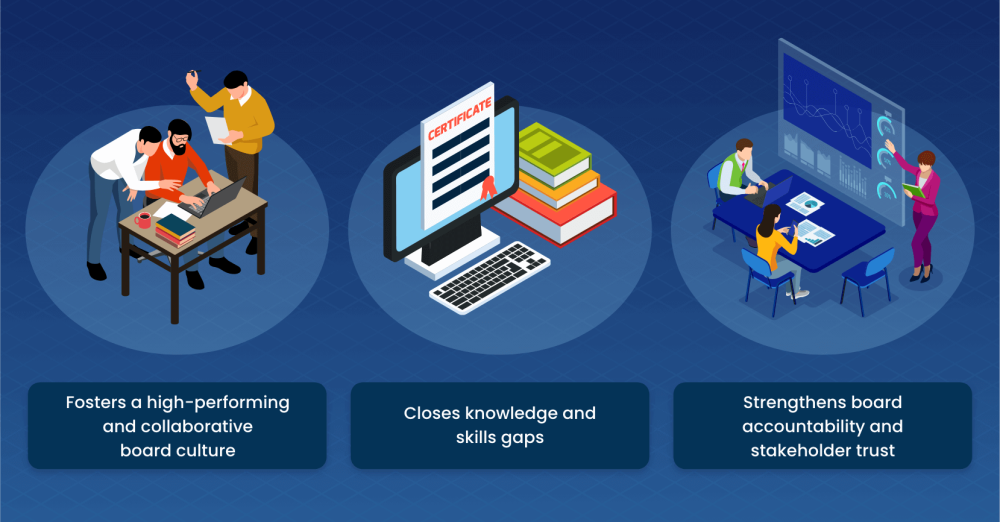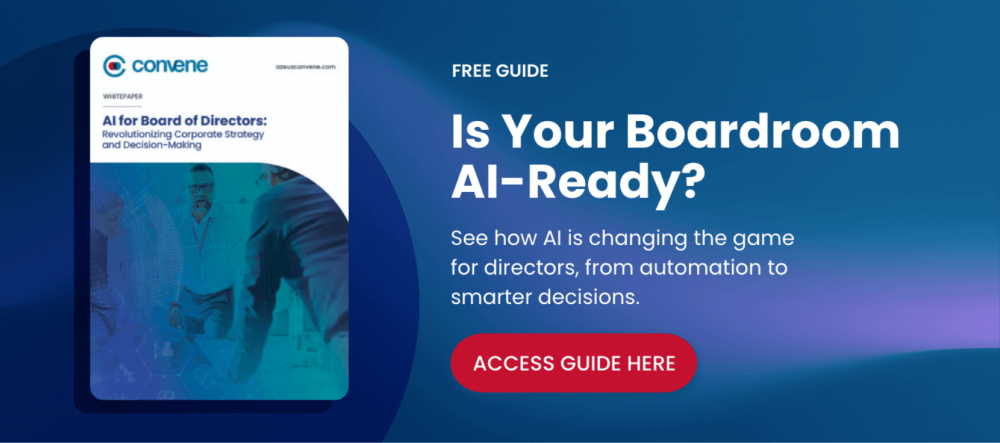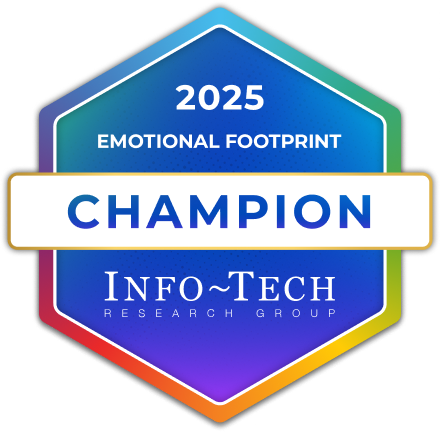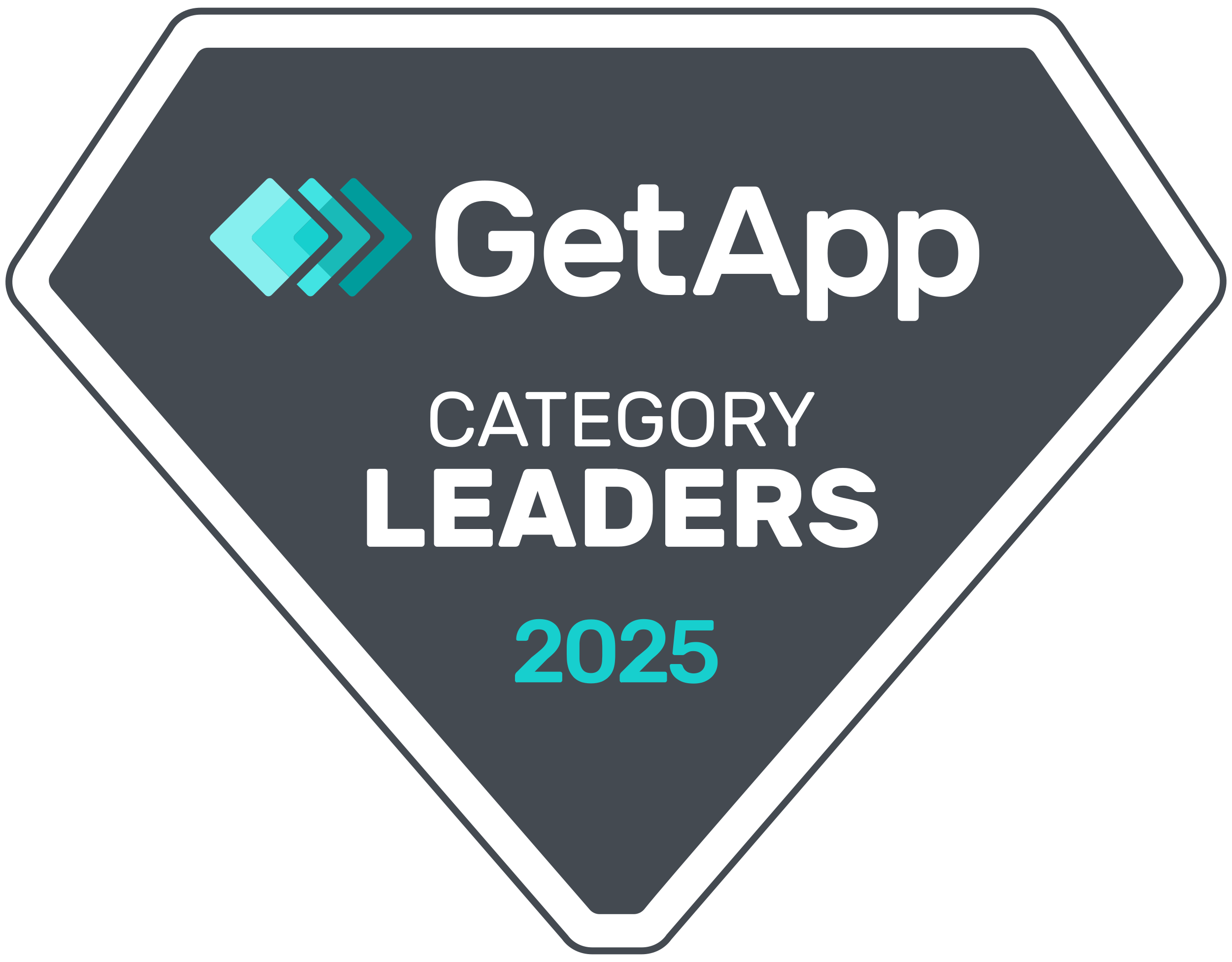Board roles and stakeholder expectations continue to evolve as the market shifts. Emerging trends, such as ESG, artificial intelligence (AI), diversity, equity, and inclusion (DEI), and cybersecurity, are taking center stage in board agendas. This drives corporate leaders to prioritize ongoing education and strategic awareness to maintain effectiveness and credibility.
As global trends reshape corporate governance, board member training is no longer optional — it’s a strategy companies must embrace to enhance board leadership.
Board development empowers leaders to navigate complex domains, enabling proactive risk management, informed decision-making, and stronger board oversight. For 2025 and beyond, digital literacy, risk management, stakeholder engagement, ESG, and strategic planning are the top five skills board leaders must master.
Explore how tailored board member training helps leaders build these critical competencies, adapt to emerging challenges, and drive sustainable long-term success. To support boards in broadening knowledge, discover how board portal apps like Convene streamline collaboration and governance for more effective board operations.
What is board member training?
Board member training is a structured learning program for directors to strengthen their understanding of critical board topics, such as governance principles, strategic leadership, risk management, compliance, and emerging market trends.
Depending on the bylaws and board culture, most boards require new directors to complete onboarding training, supplemented with continuous learning programs to refresh and deepen knowledge throughout their tenure. Directors typically have refresher training during the annual board retreat to review key governance practices and strategic priorities. Additional training sessions are scheduled when needed, based on regulatory updates, emerging risks, or other specific organizational requirements.
Who conducts training for board members?
Depending on company goals, various entities are eligible to conduct training for board members. These include internal company leaders with relevant expertise, industry associations, governance institutes, or specialized third-party training firms. Legal advisors, consultants, or subject-matter experts may also step in for training on specific topics such as fiduciary duties, ESG compliance, innovation, and cybersecurity.
To ensure effective implementation, boards may establish and rely on a board development committee — a dedicated board committee that coordinates training programs and aligns them with organizational objectives.
Why do directors need board governance training?
Beyond being a professional development tool for directors, board member training benefits stakeholders, particularly management and internal teams. Among its top benefits are:
Fosters a high-performing and collaborative board culture
Training for board members equips directors with the right principles and tools to facilitate productive discussions, manage conflicts, and make unbiased decisions.
When directors are confident in their leadership, it’s easier to foster a positive environment where everyone feels encouraged to share their viewpoints. This strengthens board cohesion and facilitates effective collaboration across the wider organization.
Closes knowledge and skills gaps
Board governance training exposes directors to critical topics such as ESG, digital transformation, AI, human capital strategy, and cybersecurity. They can leverage training to target skills gaps, particularly helping those with limited knowledge of emerging trends. Filling these gaps enables the board to address challenges, evaluate risks, and contribute to long-term initiatives more effectively in the digital era.
Strengthens board accountability and stakeholder trust
Training increases directors’ awareness of the shifting stakeholders. Learning about the latest compliance and transparency demands encourages boards to improve disclosure and fortify ethical oversight. By upholding the highest standards, they can reinforce the trust of stakeholders and protect the company’s reputation.
Essential Topics to Include in Board Trainings
Build well-rounded boards by equipping them with proper and relevant knowledge they can leverage to guide companies toward long-term growth.
Ensure directors understand the following core areas of board management:
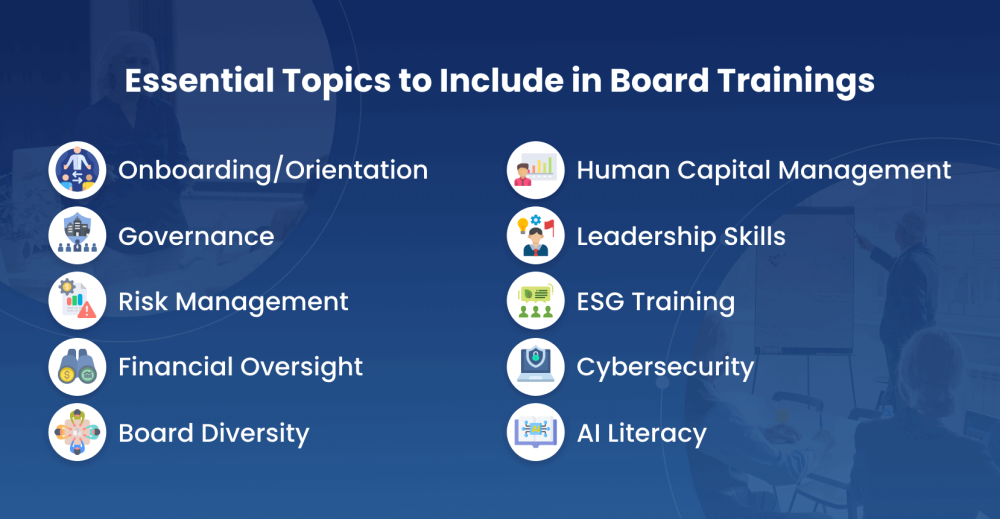
Onboarding/Orientation
Before tackling any specific topic, new directors must undergo onboarding to learn fundamental information about their organization. This entails presenting relevant board materials, such as the board handbook and bylaws, to educate on key processes and regulations.
RELATED: Guide to Welcoming and Onboarding New Board Members
Governance
Solidify the board’s understanding of good governance by training on core corporate governance principles, such as fiduciary duties, transparency, accountability, and ethical conduct. Additionally, keep directors abreast of the latest governance trends and industry-specific requirements (e.g., nonprofits, healthcare, banking, or tech) to ensure their knowledge remains relevant and actionable.
Risk Management
Comprehensive risk management training fosters more agile and proactive risk handling. Dissect every step of risk management to deepen the board’s knowledge of how to interpret risk reports, evaluate risk appetite, and align strategic decisions accordingly.
Financial Oversight
Train boards how to properly interpret financial statements, review budget proposals, forecast financial plans, and allocate resources. Provide them with tools and best practices to effectively identify emerging risks and understand financial ratios, which they’ll need when developing financial strategies.
Board Diversity
Broaden DEI understanding by emphasizing the importance of diverse representation in board composition and decision-making. Orient them on how to recognize and eliminate unconscious biases, promote inclusive leadership, and ensure fair access to opportunities across the organization. To support practical application, review relevant regulations and reporting requirements related to workplace diversity.
Human Capital Management
Explain how workforce strategy impacts business performance. Present to directors the crucial HR metrics, such as turnover rates, engagement scores, and development ROI, to help them grasp how key HCM processes work (e.g., talent acquisition, retention strategies, succession planning, and employee engagement).
Leadership Skills
Strengthen core leadership skills to improve their confidence and impact. To be effective leaders, the board must excel in the following key areas:
- Communication: Demonstrate how to cultivate a professional working environment where open dialogue and constructive feedback are welcomed. To boost relationships with internal and external stakeholders, training must include strategies for effective communication, conflict management, and collaborative problem-solving.
- Goal-setting: Highlight the importance of creating SMART goals. Teach directors how to set, track, and prioritize goals to align with the organization’s mission and long-term strategy.
- Board Assessment: Emphasize that effective leadership begins with strong self-awareness. Educate them on the value of board evaluations for identifying skill gaps, enhancing accountability, and improving board effectiveness.
ESG Training
In PWC’s 2024 survey on corporate directors, 58% of boards disclosed they lack sufficient understanding of ESG challenges. As ESG continues to reshape corporate governance, sustainability training is essential to not only grasp the extent of ESG concerns and regulations but also to empower directors with ESG tools they can utilize to develop data-driven strategies.
Cybersecurity
Cybersecurity training shouldn’t only cover the technical side of responding to cyber threats and recognizing vulnerabilities. Boards must also review relevant regulations that shape the cybersecurity landscape, such as the Health Insurance Portability and Accountability Act (HIPAA) and the General Data Protection Regulation (GDPR). This strengthens the foundation during decision-making for risk management, compliance, and data protection.
AI Literacy
As AI becomes essential to modern businesses, board members face increasing pressure to build their AI knowledge. A survey by the General Assembly in 2024 revealed critical gaps in AI training and policy awareness among the United States and the United Kingdom boards. Provide boards with extensive AI training that covers responsible and ethical development and deployment
How to Develop a High-Impact Board Training Program
Structure and prioritization are key to establishing an effective board governance training program. Strategically select topics that address gaps in the boardroom to augment skills and enhance overall board effectiveness.
Here’s a step-by-step guide to successfully building board member training courses.
1. Define board training objectives
Begin by identifying the objectives of the board governance training, whether for onboarding new directors, upskilling existing ones, or closing specific skills gaps. With defined goals, the development committee can easily align the board member training courses according to priority and desired outcomes.
2. Conduct board skill gap assessment
Conduct formal board assessments to isolate areas and skills where boards need more development. For a credible process that produces accurate reports, leverage board assessment templates and digital tools to streamline data collection, visualization, and analysis.
Download Your Free Board Assessment Template
Beyond the traditional skills, such as financial, risk management, and human resources, development committees must also pay closer attention to gaps related to emerging topics such as cybersecurity, data literacy, and AI.
3. Design a board learning program
Create a board governance training roadmap based on the board assessment. Identify the most effective learning method for the board to maintain active engagement throughout. More importantly, ensure that programs are holistic and directly target gaps to enhance directors’ competitiveness for the long term.
Among the common learning methods that make the learning experience more dynamic and effective for directors are:
Interactive Workshops
Experiential learning includes group discussions, virtual reality training, role-play, case studies, and hands-on training with tools. This encourages active participation and facilitates the real-time application of concepts. Interactive workshops are effective for leadership development, software onboarding, conflict resolution, and DEI initiatives.
E-learning Modules
The remote learning approach allows boards to absorb knowledge at their own pace. It’s ideal for busy boards and supports continuous education for topics that don’t require hands-on application, such as governance concepts, regulatory updates, and industry best practices.
Peer-to-Peer Learning
This learning method cultivates an inclusive environment where directors learn from each other’s insights. Enriching collective knowledge, peer-to-peer learning allows the board to form innovative solutions and strategies by diving deep into their experiences and aligning them with company goals.
4. Equip the board and committee with training tools
Centralize training materials, announcements, and quick updates on a single platform for streamlined dissemination. For development committees facilitating training, investing in board management software simplifies processes for involved parties. This tool offers features for tracking compliance and enhancing the scalability of training programs.
5. Evaluate training effectiveness through KPIs
Follow-up training with post-learning surveys and assessments to gauge their impact. By measuring key performance indicators or KPIs, boards and the development committee can evaluate whether the training has translated into target outcomes. Assess training effectiveness using the following training and development KPIs:
Training Attendance
Identify the number or percentage of participants attending training. High attendance rates suggest interest and commitment from the board, while low attendance signals a lack of engagement.
Course Completion Rate
The completion rate indicates the proportion of directors who complete a course or program. A high completion rate typically reflects strong course relevance, while a low rate may point to issues with course structure, content flow, or clarity of information.
Post-Training Assessment Rate
Evaluation after training is crucial to measuring whether the board has understood the topic. If the failure rate is high, the development committee may consider improving the overall quality, flow, and structure of the training modules.
Learner Satisfaction
This depicts the board’s learning experience, enabling the development committee to identify issues in training design, delivery, or relevance.
Job Performance Impact
This KPI helps justify the training investment by linking the learning to real-world job performance.
Frequently Asked Questions on Board Development Training
Want to know more about board development training? Here are the most asked questions by directors, development committees, and management.
Are there laws mandating board development training?
Board development training is essential for directors to learn the foundations of effective corporate governance. While not legally mandatory, it’s highly recommended that they take supplementary courses to broaden their knowledge and stay up-to-date with industry practices and standards. Participating in board development training demonstrates a strong commitment to delivering high-quality performance, which management looks for in directors today.
Are there free board training courses available?
There are paid and free board member training courses available. Before choosing, boards and development committees must assess the company’s goals and budget. If you are looking for board member training courses, here are some you can consider:
NonprofitReady
This platform offers over 500 free courses for nonprofit organizations. Individual directors may complete as many courses to build their competencies as nonprofit board members. Examples of courses they have are on board member essentials, the role of board members in revenue growth, and how to be an effective board member. It also offers courses on trending topics such as leadership training, mental health and wellness, and DEI.
NACD Directorship Certification
The National Association of Corporate Directors (NACD) Directorship Certification is a premier board member certification in the United States. It teaches directors core governance competencies and ethical leadership practices. Directors enroll in this certification program to validate their capabilities and enhance credibility in board management.
What are the benefits of board governance training for nonprofits?
Like for-profit companies, nonprofit board member training helps directors acquire new skills, understand their expanding responsibilities, and apply evolving regulations within organizations. Ultimately, it empowers nonprofit boards to be more strategic in their leadership as they drive initiatives to amplify their impact.
Achieve High-Performing Boards and Smarter Governance with Convene
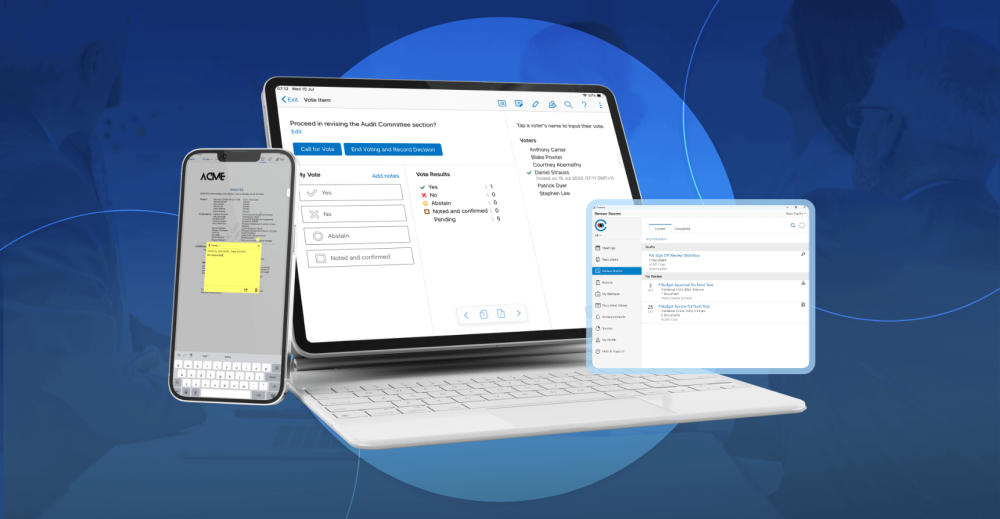
The board of directors needs more than strong strategies to navigate market shifts. They need the support of robust tools to help execute them.
Convene board portal solution boasts a proven track record of enhancing governance and streamlining collaboration for global boards and leadership teams. Designed for modern corporate governance, Convene empowers decision-makers with intuitive board portal features for smarter agenda preparation, centralized document management, efficient board assessment, and real-time collaboration.
With Convene, facilitating board development training has become simpler. Board members can access training materials, participate in interactive sessions, and track their progress—all in one place.
Book a demo to see firsthand how Convene digital board portal helps companies build high-performing boards.
Jean is a Content Marketing Specialist at Convene, with over four years of experience driving brand authority and influence growth through effective B2B content strategies. Eager to deliver impactful results, Jean is a data-driven marketer who combines creativity with analytics. In her downtime, Jean relaxes by watching documentaries and mystery thrillers.


